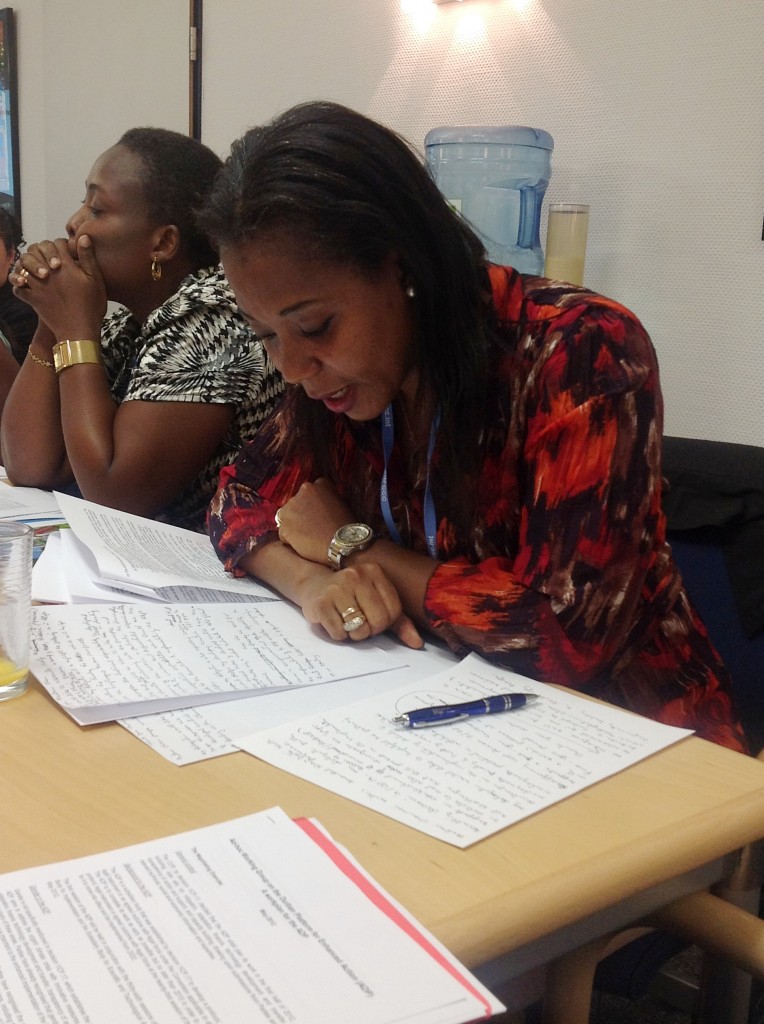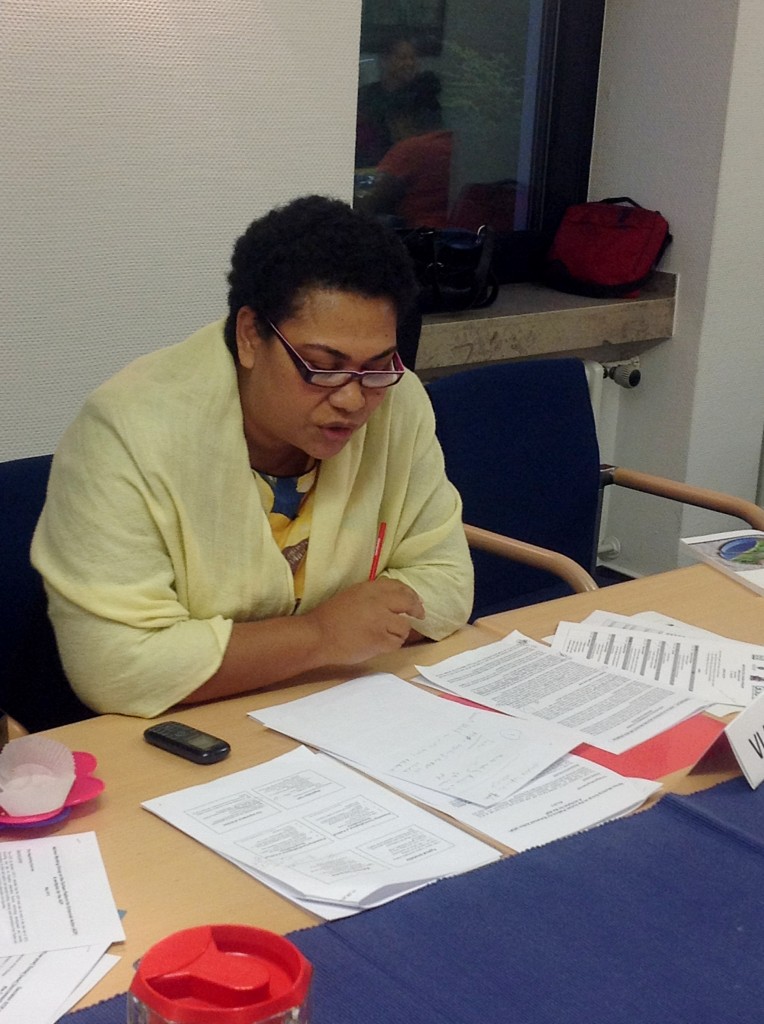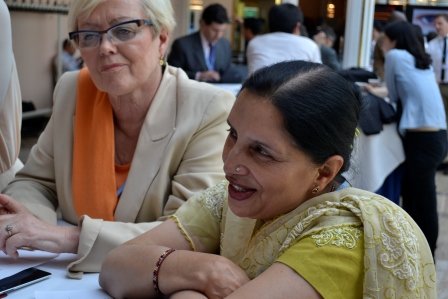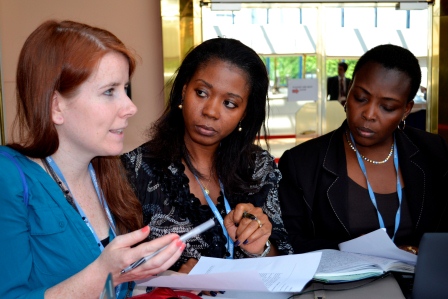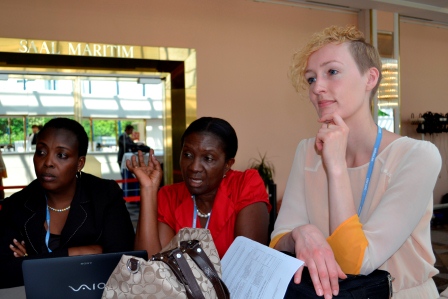BONN, GERMANY (May 27 2012)– Since WEDO began administering the Women Delegates Fund* (WDF) in 2009, a program to support and enhance the participation of women delegates in the UN Framework Convention on Climate Change (UNFCCC) process, a key component has been networking and capacity building. Inherent in this is an understanding that transforming representation and inclusiveness in global decision making processes has to be about more than simply bringing more people to the table. The WDF prioritizes building leadership skills through knowledge and skills training on negotiations, media, and communications.
One of the key skills that the WDF delegates requested was training on intervention drafting and delivery: how to write one, deliver one, and the fundamentals of when, where and who could make one. In the UNFCCC, and in most UN processes, an intervention is basically a statement made by either a country or a group of countries (G77, LDCs), when they want to intervene into the process. Who can speak, when and for whom are fundamental to the hierarchies in representation among countries. Speaking for individual countries in the larger and more formal plenaries is usually designated to the Heads of Delegation for each member state. Currently, women make up around 12% of Heads of Delegations. The process is then split into many key negotiating areas [i.e. adaptation, mitigation, finance, etc.] and each country designates someone to follow an area and intervene on behalf of their country. Many topics are negotiated by blocs where individual countries speak together as one. It is a complicated and highly bureaucratic process, which has a specific set of rules to follow, and understanding them is crucial to being effective in the negotiations and having the confidence, as a delegate, to raise your flag.
The Training
From Friday to Sunday just prior to the start of the UNFCCC negotiations in Bonn, WDF participants took part in a two-day “Night School” on negotiation skills. Day 1 included general introductions of participants and a presentation on negotiations under the UNFCCC. Participants were then assigned to mock countries and provided with briefing materials on their country positions and asked to prepare an opening intervention for a plenary session held toward the end of the evening session. A mock negotiating text was provided to participants so that they might begin to prepare positions in advance of the session in Day 2. Day 2 began with a review of proceedings to date and an explanation of planned activities. Participants worked in negotiating groups on the mock text. The second half of the session consisted of a mock contact group session where participants negotiated on proposed amendments to the text.
The Feedback
Participants said the training was exactly the kind of hands-on practical experience they had been looking for. Even for some of the more veteran participants, being able to practice developing and delivering an intervention as well as to negotiate on a specific text was a great refresher on the fundamentals of participating in the UNFCCC process. Throughout the rest of the two week negotiating period, the WDF participants met daily to update each other on the different aspects of the negotiations and to share how the training was enhancing their effectiveness on their delegations. One delegate replied, “when I showed my Head of Delegation some of the materials we had used he said, ‘you will now have to train all of us!'” Another delegate shared, quite poignantly, “in the three years I have been coming to these negotiations, I have never once raised my flag to speak. The training really helped to bolster my confidence. In Bonn, I have raised my flag three times on behalf of my country.”
Transformation takes time. By focusing on building key leadership skills, providing a network and mentorship opportunities, the WDF continues to work towards not only ensuring women are at the negotiating table for key climate change policy discussions, but that they have the tools and support to change the face of women’s representation in governance at all levels.
Follow-up to this training is currently being planned for COP18 in Doha, Qatar. If you would like more information on how to be involved, please contact bridget@wedo.org. You can read more about the experiences of the delegates in the Women Delegates Fund in our 2011 publication, Empower Women, Impact Climate.
*The Women Delegates Fund (WDF) was established in 2009 by WEDO, the Global Gender Climate Alliance (GGCA), and the United Nations Development Program (UNDP) with the support of the Government of Finland, and since 2011, the support of the Government of Iceland.



